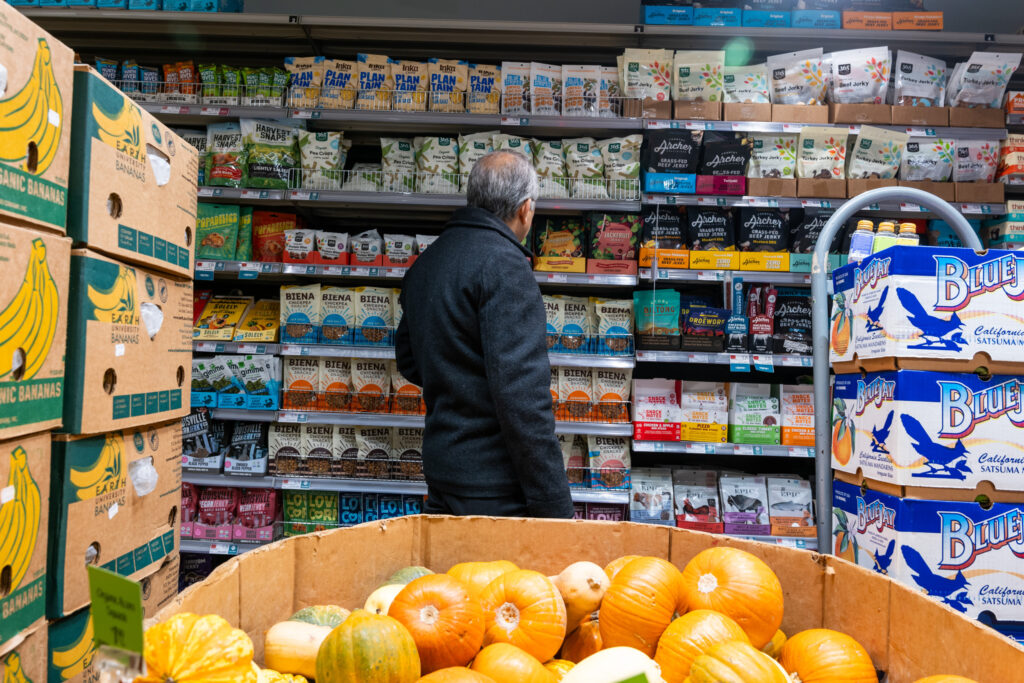From popular brands like Burger King, McDonald’s, Starbucks, and Whole Foods to everyday kitchen staples such as rice and salt, a new study highlights the alarming extent of plastic contamination in foods.
These findings come from investigations by PlasticList, an independent research group that has tested dozens of products for harmful plastic-related chemicals.
Newsweek reached out to Nat Friedman, head of research at PlasticList, for comment.
Why It Matters
Plastic contamination in food is becoming pervasive, with potential health risks ranging from hormone disruption to cardiovascular problems. The research, released on December 28 and conducted in the Bay Area, sheds light on how ubiquitous these pollutants are in the global food chain.
Products from well-known American brands were found to contain high levels of plastic chemicals, highlighting that even trusted names are not immune. The study analyzed 300 items, including seafood, common kitchen staples, and bottled water, which emerged as the top culprits. The findings illustrate the extent of microplastic contamination in our food and its pervasive presence in our diets.
What To Know
PlasticList tested nearly 300 food products and discovered high levels of phthalates, a chemical used to make plastics softer and more flexible, in fast foods such as Burger King’s chicken nuggets and Wendy’s hamburgers.
Shake Shack’s cheeseburger ranked among the most contaminated prepared foods, while supposedly healthier options, like Sweetgreen’s Chicken Pesto Parm Salad, also showed significant contamination. The study further revealed that organic labels do not necessarily guarantee lower plastic content.
The research also highlights contamination in staples such as rice as one of the major contributors, with brands like Whole Foods Organic Long Grain White Rice having 2,240 nanograms of phthalates per serving.
Testing revealed the highest levels of phthalates in the following products across major food categories:
- Beverages: McDonald’s Vanilla Shake (<4,500 nanograms per serving) was found to have the highest DEHP contamination among beverages.
- Fast Food: McDonald’s Vanilla Shake (<4,500 nanograms per serving) also topped the fast food category.
- Dairy: Whole Foods Mozzarella String Cheese Low-Moisture Part-Skim (<280 nanograms per serving) led the dairy category.
- Prepared Meals: Kraft Mac & Cheese, measured after microwaving, (<700 nanograms per serving) contained the highest DEHP in this group.
- Seafood: Whole Foods Cold Smoked Atlantic Salmon (<570 nanograms per serving) had the most DEHP contamination in seafood products.
Health experts warn that these chemicals act as endocrine disrupters, interfering with hormone production and potentially leading to long-term issues like obesity, diabetes, and infertility.
However, the researchers of this study cautioned against drawing high-confidence conclusions from these results. They emphasized that the findings represent point-in-time results from a small number of product samples and may not fully reflect actual product contents, with testing methodologies varying.
You can view the complete list at plasticlist.org.
What People Are Saying
Fengqi You, faculty member at Cornell University’s Smith School of Chemical and Biomolecular Engineering, told Newsweek: “Microplastic human uptake, as a direct environmental consequence of post-consumption plastic waste in the current industrialization era, is a novel concept and a newly discovered phenomenon worth further investigation.”
Sherri “Sam” Mason, a sustainability expert at Penn State Behrend, told CNN: “All of those chemicals are used in the manufacturing of plastic, so if plastic makes its way into us, it’s carrying those chemicals with it.”
What Happens Next
Legislative attention on microplastics is expected to grow as environmental organizations push for tighter controls.
The potential passage of comprehensive measures, such as the Break Free From Plastic Pollution Act, could reshape regulations significantly. However, their success will hinge on bipartisan cooperation and ongoing public pressure.
Read the full article here

















